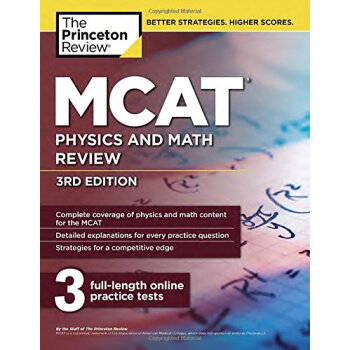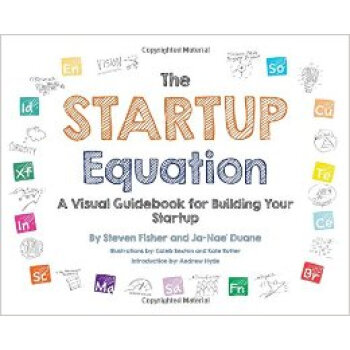![The Winner Effect: The Neuroscience of Success and Failure [精装]](https://pic.windowsfront.com/19282444/rBEhVVGvCegIAAAAAAFTtz2npEcAAAABAJX9MsAAVPP306.jpg)

具体描述
内容简介
What makes a winner? Why do some people succeed both in life and in business, and others fail? Why do a few individuals end up supremely powerful, while many remain powerless?The “winner effect” is a term used in biology to describe how an animal that has won a few fights against weak opponents is much more likely to win later bouts against stronger contenders. As Ian Robertson reveals, it applies to humans, too. Success changes the chemistry of the brain, making you more focused, smarter, more confident, and more aggressive. The effect is as strong as any drug. And the more you win, the more you will go on to win. But the downside is that winning can become physically addictive.
By understanding what the mental and physical changes are that take place in the brain of a “winner,” how they happen, and why they affect some people more than others, Robertson answers the question of why some people attain and then handle success better than others. He explains what makes a winner—or a loser—and how we can use the answers to these questions to understand better the behavior of our business colleagues, family, friends, and ourselves.
作者简介
A neuroscientist and trained clinical psychologist, Ian Robertson is an international expert on neuropsychology. Currently Professor of Psychology at Trinity College Dublin, and formerly Fellow of Hughes Hall, University of Cambridge, he holds visiting professorships at University College London and Bangor University in the United Kingdom, and is a visiting scientist at the Rotman Research Institute in Toronto, Canada. He is a member of the Royal Irish Academy and has published over 250 scientific articles in leading journals. He is also author and editor of ten scientific books, including the leading international textbook on cognitive rehabilitation, and three books for the general reader including Mind Sculpture: Your Brain’s Untapped Potential. He is a regular keynote speaker at conferences on brain function throughout the world. He lives in Dublin, Ireland.精彩书评
“A book that will help you understand what makes winners, and what paths to avoid when you get power.”—MindYourDecisions
"Compelling stories combine with cutting-edge science to show why coming first is not the same as being a real winner -- engrossing."
—Oliver James, author of They F*** You Up
“Like a masterful detective, Dr. Robertson provides a captivating and insightful journey into understanding the mystery of the effects of power on human behavior and thinking.”
—Mike Hawkins, award-winning author of Activating Your Ambition: A Guide to Coaching the Best Out of Yourself and Others
“He tells a compelling, vivid and instructive story of how we are empowered and how we are disempowered and how we succeed and how we fail. I really enjoyed it -- it is a must read.”
—Raymond Tallis, author of Aping Mankind
“A fascinating topic dealt with in a fascinating way. … I love the book.”
—Matt Cooper, author of How Ireland Really Went Bust
“What does it take to be a winner; to be successful and achieve at an optimal level? Professor Robertson has masterfully synthesized cutting edge social, cognitive, and developmental psychology, as well as neuroscience with fascinating stories of notable people in the public eye to answer this question. Thoroughly researched and engagingly written by an international scholar, once you begin reading this book it will be difficult to put down. Whatever your profession, this remarkable book will most assuredly resonate with you.”
—John B. Arden, PhD, author of Rewire Your Brain
"Utterly fascinating."
—Publishers Weekly
前言/序言
用户评价
这本书带给我的最大价值,在于它提供了一种“去情绪化”的视角来审视个人的成败。我们常常将成功或失败过度浪漫化或污名化,将其归结为某种神秘的“特质”或“运气”。然而,这本书仿佛递给我们一副清晰的透镜,帮助我们剥离那些情感上的噪音,看到驱动我们表现的底层机制。我尤其欣赏作者在讨论“失败的价值”时所采取的冷静态度,他没有过度美化挫折,而是将其视为一个必须被科学分析和系统性应对的数据点。这种务实且具有建设性的态度,让我从过去的懊恼中解脱出来,转而关注于如何优化下一次的“运行系统”,这是一种非常积极且富有赋权的阅读体验,让人感觉自己掌握了更可靠的内在指南。
评分这本书的封面设计就给人一种非常引人注目的感觉,色彩搭配大胆而富有冲击力,字体选择也很有力量感,让人在书架上看到它时,很难不被吸引过去。我尤其喜欢它封面上那种抽象的、仿佛在表现能量流动的图案,这似乎在暗示着内容将是关于某种内在驱动力的探索。拿到手里的时候,精装版的质感非常扎实,纸张的厚度和触感都体现了出版方的用心,翻阅起来有一种很愉悦的体验,让人感觉这不是一本速成的“成功学”读物,而是一本值得珍藏和细细品读的硬核之作。内页的排版也十分清晰,字体大小适中,段落间距合理,即便是内容比较密集的章节,阅读起来也不会感到压迫,这对于一本需要深入思考的书来说至关重要。整体而言,从外在包装到实际触感,这本书给我的第一印象是专业、高品质,并且充满了严肃探讨成功的严肃性。
评分阅读这本书的过程,与其说是吸收知识,不如说是一场思维的重塑。作者在阐述每一个概念时,都非常注重细节的打磨,他似乎非常擅长用日常生活中的小场景来佐证那些复杂的理论,使得原本可能晦涩难懂的学术观点变得触手可及。我特别欣赏他对于“习惯的形成与瓦解”那一章的处理,那部分的论述非常细致入微,让我开始重新审视自己长期以来那些看似微不足道的日常行为模式,并意识到它们是如何潜移默化地塑造了我的“高点”和“低谷”。这种代入感极强,读完后我忍不住停下来,合上书本,在安静中回味了很久,因为它确实迫使我从一个全新的角度去剖析自己过去的行为轨迹,而不是简单地归咎于运气好坏。
评分我花了很长时间才决定购买这本书,主要是因为市面上充斥着太多关于“如何成功”的浅层指导,我希望能找到一本能提供更深层次见解的著作。这本书的内容结构编排得非常有逻辑性,它似乎并不是简单地罗列成功人士的传记或者口号式的建议,而是试图构建一个关于人类行为和决策机制的完整框架。我注意到作者在引言部分就提出了几个非常尖锐且发人深省的问题,这些问题直指现代社会中许多人都在努力但不得其解的困境,比如为什么有些人似乎总能抓住机遇,而另一些人却在重复失败的模式?这种开篇方式立刻抓住了我的注意力,让我对后续章节的深度充满期待,感觉这不仅仅是一本提供答案的书,更像是一本引导读者进行自我审视和深入思考的工具。
评分与其他同类书籍相比,这本书最显著的特点是其跨学科的广度与深度融合。我能明显感受到作者在整合心理学、认知科学乃至生物学等多个领域的最新研究成果,来支持他的核心论点。这种多维度的论证方式,让整本书的论述显得异常坚实和难以辩驳。举例来说,当谈及“风险偏好”时,作者并非停留在主观描述,而是引用了相关的神经递质活动研究来解释其背后的生理基础,这种严谨性让我非常信服。它超越了传统的励志文学的范畴,更像是一本为想要深入理解人类动机的读者准备的教材,那些希望找到“捷径”的读者可能会觉得内容略显学术化,但对于追求根源性理解的人来说,这恰恰是它的宝贵之处。
相关图书
本站所有内容均为互联网搜索引擎提供的公开搜索信息,本站不存储任何数据与内容,任何内容与数据均与本站无关,如有需要请联系相关搜索引擎包括但不限于百度,google,bing,sogou 等
© 2026 book.coffeedeals.club All Rights Reserved. 静流书站 版权所有

![Made at Home: Cheese & Dairy [精装] pdf epub mobi 电子书 下载](https://pic.windowsfront.com/19283111/rBEhWFHM3c4IAAAAAAIwS0aPacsAAAmjwPQzncAAjBj567.jpg)
![Matter: See It, Touch It, Taste It, Smell It [平装] [5岁及以上] pdf epub mobi 电子书 下载](https://pic.windowsfront.com/19460534/rBEhWFKlniIIAAAAAAHURP64lyEAAGjHQHWUlAAAdRc122.jpg)
![Centered Leadership Leading with Purpose, Clarity, and Impact [平装] pdf epub mobi 电子书 下载](https://pic.windowsfront.com/19478827/53bcc3b3N56f9e629.jpg)
![Event Design活动现场设计 [精装] pdf epub mobi 电子书 下载](https://pic.windowsfront.com/19502372/541bfb10N1658a04b.jpg)

![My Antonia [精装] pdf epub mobi 电子书 下载](https://pic.windowsfront.com/19504591/54698611Nd4e4fba8.jpg)
![The Stand [精装] pdf epub mobi 电子书 下载](https://pic.windowsfront.com/19526995/5462b5a1Na7378b07.jpg)

![Adventures Of Alice Lascelles The [精装] pdf epub mobi 电子书 下载](https://pic.windowsfront.com/19545946/55f7eef8Na1500729.jpg)
![Yves Saint Laurent + Halston: Fashioning The '70S [圣罗兰+ 候司顿:塑造70年代] pdf epub mobi 电子书 下载](https://pic.windowsfront.com/19573900/56aae17bNd6a0f84d.jpg)
![Andy Warhol: The Complete Commissioned Magazine Work 1948-1987 [安迪·沃霍尔:杂志工作全集1948年年至19 87年] pdf epub mobi 电子书 下载](https://pic.windowsfront.com/19574068/56aae185Nece65087.jpg)
![Multiple Exposures: Jewelry And Photography [多重曝光:珠宝和摄影] pdf epub mobi 电子书 下载](https://pic.windowsfront.com/19574234/577479dbN6f12c33a.jpg)

![Dog Wants to Play [01--03] pdf epub mobi 电子书 下载](https://pic.windowsfront.com/19615983/570799d3N243fa59a.jpg)
![JavaScript For Kids For Dummies [平装] pdf epub mobi 电子书 下载](https://pic.windowsfront.com/19638067/578342b6N2f6fc9c2.jpg)


![Woo, Wow, and Win Service Design, Strategy, and [精装] pdf epub mobi 电子书 下载](https://pic.windowsfront.com/19687125/578760c9Nb17dde2b.jpg)

